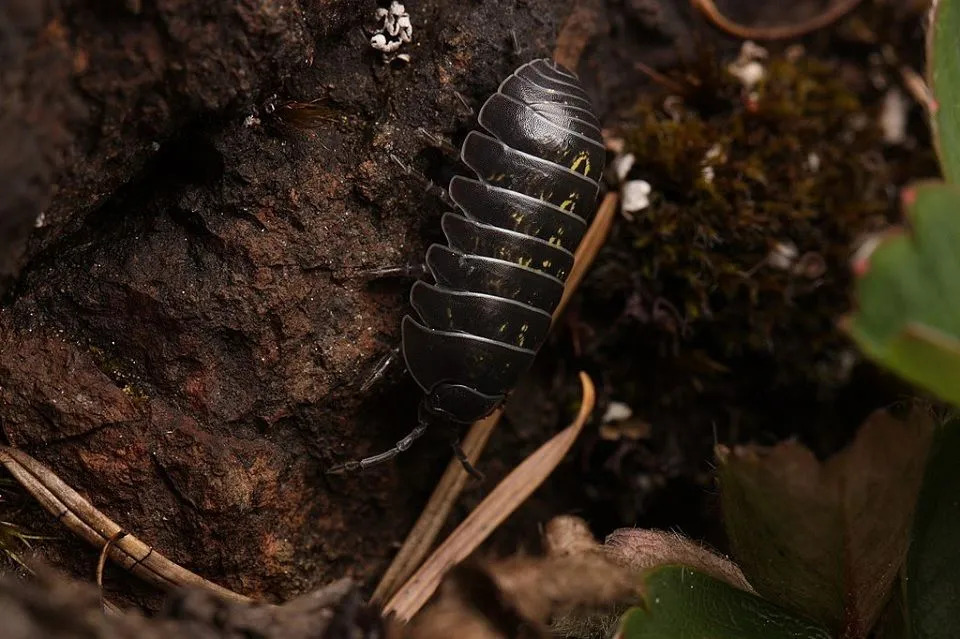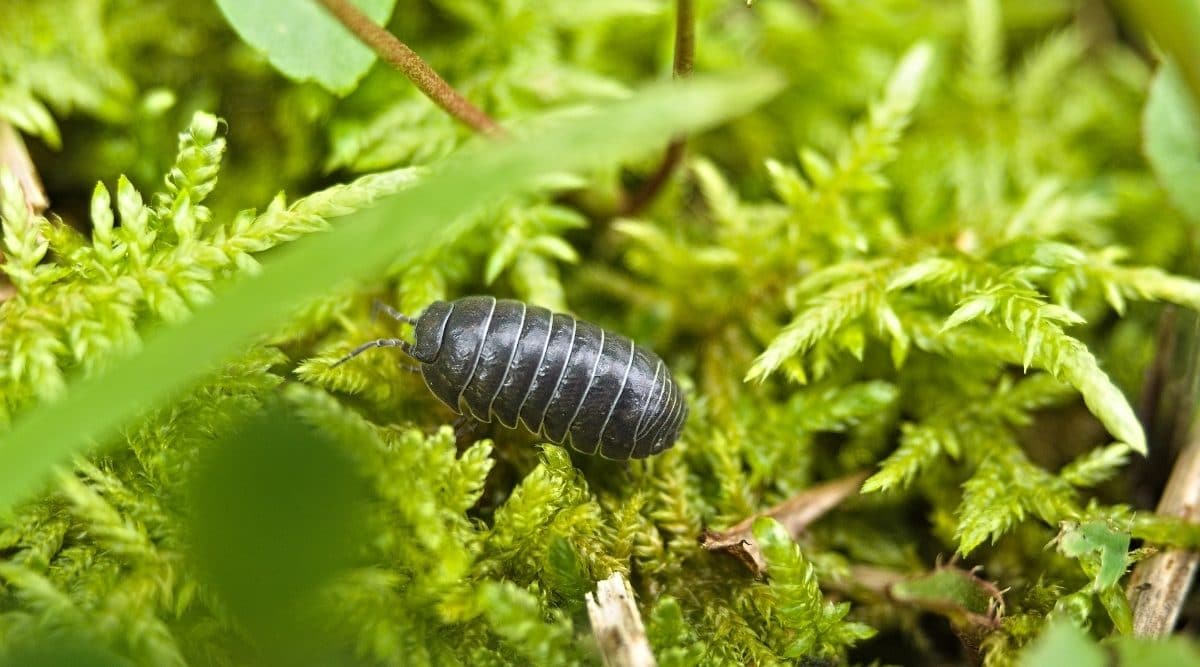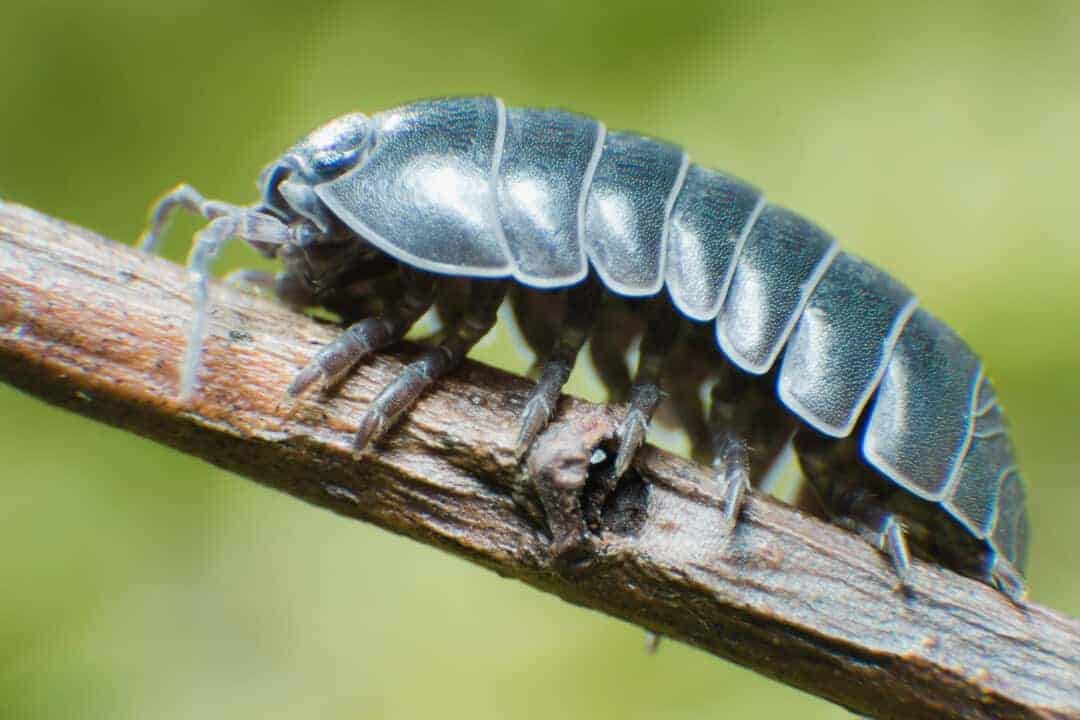How To Get Rid Of Pill Bugs
Pill bugs, also known as sow bugs or woodlice, can become a nuisance in gardens and outdoor spaces. These small, crustacean-like pests feed on decaying organic matter and can damage young plants and seedlings if their populations become excessive. If you're dealing with pill bugs in your garden, it's essential to take prompt action to prevent further damage.
What Are Pill Bugs?
Pill bugs, also known as roly polies, are small arthropods belonging to the crustacean family. These organisms are found in humid and damp environments, living on decaying vegetation and organic material.
Pillbugs feed on decaying matter such as leaves or even fruits and vegetables that come into direct contact with the soil. Their role in decomposition is vital for healthy ecosystems because without them, organic materials would take much longer to break down.
However, large populations of pillbugs can lead to problems for gardeners due to their voracious appetite for many kinds of plant parts from leaves and seedlings to new roots. This leads to extensive damage being done in short periods of time, while reducing the yield of plants that were intended for harvest.
Will Pill Bugs Actually Damage Gardens?
In some instances, pill bugs can be beneficial to your garden, so it's essential to ensure that they are indeed the culprits causing damage to your plants before attempting to remove them.
Various common pests can threaten plants similarly to pill bugs, so it's crucial to eliminate the possibility of issues arising from these other creatures before taking any measures. Stink bugs, for instance, can inflict comparable damage to plants, so be sure to rule them out before taking action.
What Do Pill Bugs Eat?
Pill bugs are small terrestrial crustaceans commonly referred to as rollie pollies in certain regions of the world. Although they may look cute, they can be quite annoying when they invades gardens and homes, especially when they start to feed on plants.
Luckily, their diet is not limited to plant matter only; instead, bugs also feed on animal matter as well as decaying organic matter such as dead plant material and small insects.
In addition, pill bugs often feed on root systems of plants, fruit, and vegetable matter which can have devastating effects on agricultural crops. These small pests are especially attracted to moist areas where there is decaying wood present. This provides them with an ample supply of nutrients and places for them to hide during the day.
Only Get Rid Of Pill Bugs If They Begin Colonizing In Your Media
Pill Bugs, also known as rolly-pollies, are considered a minor pest for many gardens. Though these critters can cause damage to delicate plants, they do not do so at the same level of other garden pests like aphids and slugs. If you notice pill bugs beginning to colonize your outdoor media, however, it is wise to take action. Acting quickly will save your plants from further damage.
To prevent an infestion of bugs from becoming out of control, take steps such as introducing predators like birds or spiders and physically removing excess bugs manually. As pill bugs reproduce rapidly, this should be done throughout the year with particular attention being paid in March and April.
If more intensive efforts become necessary then specialized pest control products can be sourced online or through hardware stores. Taking steps early when signs of a colony emerge is the best way to stop an infestation in its tracks and protect your beloved garden!
How To Prevent A Pill Bug Infestation In The First Place
There are numerous straightforward methods to deter these pests from invading your garden in the first place. The most basic approach is to eliminate the environment preferred by roly-poly bugs.
Eradicate weeds, fallen fruits and vegetables, accumulated leaves, and other types of garden waste. Maintain cleanliness all year round. This is particularly important when the growing season concludes and the garden is often at its untidiest.
Pill Bugs Love Moist Conditions
Pill bugs love moist conditions, so it is important for homeowners to practice proper watering techniques and eliminate the likelihood of their soil becoming overly moist. To do this, ensure that you don't over water to the point where it saturates the ground and pools at the surface, only water when necessary and allow the soil to dry out partially.
Furthermore, make sure that when mulching around plants, use a type of mulch that is course enough to let water pass through easily and not remain damp for too long on the surface near your plants. This would create an ideal environment for bugs as neither does excess water nor too little moisture appeal to them.
Companion Planting
Companion planting is an old-age gardening technique that has seen a rise in its popularity in recent times. It involves planting two or more compatible crops side by side to take advantage of the benefits each plant can provide for the other.
Certain plants have been shown to help create beneficial ecosystems for each other, helping them resist pests and diseases, improve yields and even grow better. For example, planting marigolds alongside tomatoes can help keep the tomato harvest free from roly poly bugs.
The strong smell of the marigold will often send them away, thus leaving only one plant to take care of pests instead of both.
How To Get Rid Of Pill Bugs In The Garden Naturally
Naturally, insecticides can be used to eliminate these pests from your garden. Nevertheless, there are various natural techniques to remove pill bugs from your garden effectively.
First, enhance the airflow with max-fan surrounding your plants by using trellises for vines and elevating fruits and vegetables off the soil.
Additionally, create pill bug traps with items such as beer-filled cups, citrus peels, and bamboo pieces. Regularly inspect and empty these traps, disposing of the captured bugs as necessary.
Physically Remove The Pill Bugs From Your Soil
Removing pill bugs from your soil can be done relatively easily, but it does take some determination. The first step is to prepare a bucket with two parts of water and one part of soap and bring it outdoors with you.
Using a garden trowel or your hands, carefully dig up the ground near where the bugs are located and scoop them up into the bucket of soapy water. This will be difficult as these pests are quite large and slow moving, but it should eventually be successful.
For more severe or widespread infestations, complete transplantation may be necessary. This entails digging out all affected plants as well as their roots, depositing them into a fresh pot filled with fresh soil, and then topping off with some additional beneficial nutrients or fertilizer to promote faster recovery time.
It’s important to note that this process should only happen once you have completely removed the pillbugs from the old soil if possible; otherwise, they can simply make their way back in and continue causing problems for your garden.
Kill Pill Bugs With Diatomaceous Earth
Diatomaceous earth is a great natural pest control method that can help gardeners and farmers eliminate pill bugs, also known as roly-polys. This powder is made out of the ground fossils of prehistoric creatures, making it an effective abrasive to crawling pests.
Applying this powder will help you keep these insects away from your plants, but you should always recollect and reapply it after watering or rainfall.
What Insecticide Kills Pill Bugs In The Garden?
When faced with a problem of bugs in potted plants, one of the first solutions most people consider is to use insecticides and/or pesticides. While chemical-based insecticides can work effectively, many gardeners prefer to go with botanical insecticides derived from plants as they are typically less toxic.
Fortunately, there are several excellent options available that can help you get rid of the bugs without subjecting your plants or yourself to potential harm.
Final Thoughts
Getting rid of pill bugs in the garden may seem like a formidable task, but it is possible. The most important thing to do is to ensure that your garden is healthy and free from decaying organic matter, which can attract these pests.
By removing dead plants or foliage, avoiding overcrowding of plants and shrubs and trimming back overgrown hedges you will help to reduce an attractive environment for bugs.
Once your garden is healthy, you can look into methods for controlling the infestation. Other methods include spraying soapy water on the foliage or soil where the bugs have been seen frequenting, this will disrupt their activities until you can begin treating them with a pest control product.
Having an effective pest management system in place is key to keeping your garden free from these pesky pests.












